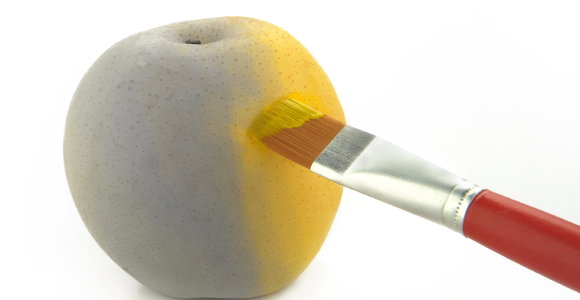The rainbow of bright
colors that seem to glow from much of our food supply today may have you
wondering about the safety of such bright colors not usually found in nature.
Foods such as candy, kids' cereals, fruity beverages, snacks foods, and many
others are loaded with artificial dyes. In fact, almost all processed food
contains artificial food dyes, often more than one. But are all of these
vibrant colors bad for our health? You may have heard the recent buzz about the
FDA's decision to reexamine the safety of commonly used artificial food dyes.
Let's take a look at the latest information.
The FDA Food
Advisory Committee's members include food scientists, toxicologists,
epidemiologists and environmental health specialists.These medical and
environmental experts met in late April, 2011, to look at all the available
research and data on food dyes and behavior in children. They also listened to
industry and consumer advocates on the issue. The FDA's Food Advisory Committee
ultimately decided that there is no clear evidence that artificial food dyes cause
hyperactivity or any kind of behavioral problems in children. They did,
however, decide that a need for more research on the topic is warranted. Their
conclusion was that all the current research does not show that color additives
cause hyperactivity in the general population. However, the FDA did state, "For
certain susceptible children with Attention Deficit/Hyperactivity Disorder and
other problem behaviors, however, the data suggest that their condition may be
exacerbated by exposure to a number of substances in food, including, but not
limited to, synthetic color additives."
The panel also
decided (in a narrow vote) to vote against recommending that more information
regarding artificial food dyes be added to food labels, in the form of a
warning about a risk of hyperactivity in children.
The FDA's website
claims that the idea that dyes and additives cause childhood hyperactivity has
not been proven by research. The website states, "Results from studies on this
issue either have been inconclusive, inconsistent, or difficult to interpret
due to inadequacies in study design."
One way to think
about this issue is that most foods that contain artificial food dyes are also
heavily-processed and not very nutrient-dense (many nutrients but few
calories). On the other hand, unprocessed, nutrient-dense foods such as whole
fruits and vegetables, whole grains, lean meats and fish, nuts, seeds,
vegetable oils, eggs, natural cheeses, and unflavored/unsweetened dairy foods
are naturally free of artificial food dyes. For overall health, these foods
should make up the majority of what you're eating. All too often the foods that
contain artificial food dyes are chock-full of added sugar and fat as well, so
these processed foods should be chosen less often because they are less
healthy.
The bottom line:
An occasional treat, even one with artificial food coloring, is safe as
long as you are consuming an overall healthy diet most of the time. So those
festive, colorful jelly beans are not poisonous, but I wouldn't recommend that
you eat them every day. As with all foods, moderation remains key.
Kari Hartel, RD, LD is a Registered Dietitian and freelance writer based out of St. Louis, MO. Kari is passionate about nutrition education and the prevention of chronic disease through a healthy diet and active lifestyle. Kari holds a Bachelor of Science in Dietetics from Southeast Missouri State University and is committed to helping people lead healthy lives. She completed a yearlong dietetic internship at OSF St. Francis Medical Center in Peoria, IL, where she worked with a multitude of clients and patients with complicated diagnoses. She planned, marketed, and implemented nutrition education programs and cooking demonstrations for the general public as well as for special populations, including patients with cancer, heart disease, diabetes, Alzheimer's disease, obesity, and school-aged children. Contact Kari at [email protected].



